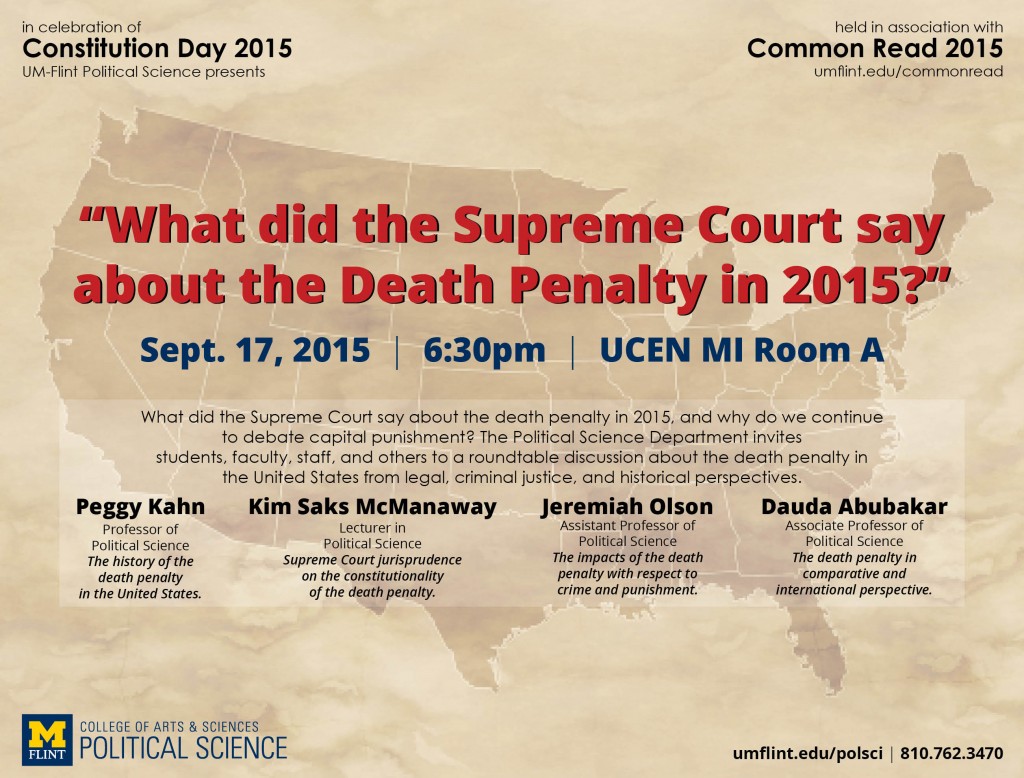
On Thursday, September 17, faculty of the UM-Flint Political Science Department will answer the question “What did the Supreme Court Say about the Death Penalty in 2015?”
The event, celebrating Constitution Day and coinciding with Common Read 2015-2016, will feature a panel discussion covering different facets of the death penalty question. This academic year’s Common Read book is Dead Man Walking, a memoir by Sister Helen Prejean.
Peggy Kahn, Professor of Political Science and the department chair, will discuss the history of the death penalty in the United States. Kim Saks McManaway, Lecturer in Political Science, will discuss Supreme Court jurisprudence on the constitutionality of the death penalty. Jeremiah Olson, Assistant Professor of Political Science, will talk on the impacts of the death penalty with respect to crime and punishment. Dauda Abubakar, Associate Professor of Political Science, will cover the death penalty in a comparative and international perspective.
Says Saks McManaway, “A discussion of the death penalty’s position in Supreme Court jurisprudence is not only timely but exemplifies the trajectory of case law generally in the 20th and 21st centuries. The death penalty has had a storied history at the Supreme Court in the last 50 years and that history continues to this day. Just this past term, the Court dealt with an issue of method of execution and did so by relying on 50 years of active and relevant precedent. Few other areas of the law have held such a place in the Court’s jurisprudence over the past century as the death penalty. Few students realize the parameters of the death penalty let alone its history. Even fewer know that there was a period in the past century when the death penalty was temporarily halted by the Court because of concerns over its constitutionality. These are important issues to talk about in an ever-changing legal landscape and the legal definition of one of our hallmark civil liberties deserves regular and robust discussion.”
Kahn added, “In an international era of death penalty abolition, state executions in the U.S. remain a key issue of public discussion. Is the death penalty appropriate in an age when human rights and dignity have become basic democratic standards, and is it necessary in an age of modern prison systems? Is the death penalty applied ‘fairly,’ underpinned by careful and adequate judicial processes and applied consistently in proportion to the severity of the crime? As the University of Michigan-Flint Common Read focuses on Sister Helen Prejean’s Dead Man Walking and prepares to welcome her to campus October 8, the Political Science Department invites students, staff, faculty, and community members to a roundtable on the death penalty in the U.S.”
This event is free of charge and open to the public. It will start at 6:30pm and will be held in the UCEN’s Michigan Room A.
For information, visit umflint.edu/polsci or call 810.762.3470.




